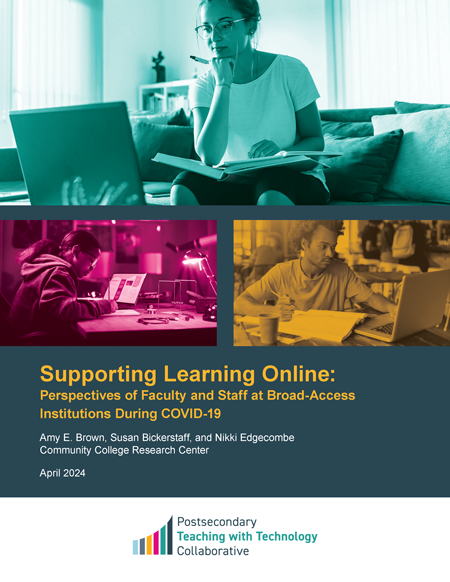In this second blog post of a multi-part series on conversations with edtech developers, researchers, and practitioners, Meaghan Duff, vice president of programs at the Minerva Project, and David Yaskin, CEO coach and consultant at Ed Tech Coaching and founder of Starfish Retention Solutions, discuss how entrepreneurs can think about who their customers are and what needs they should focus on when trying to break into a new market.
In this first blog post of a multi-part series on conversations with edtech developers, researchers, and practitioners, the Collaborative’s principal investigator Rebecca Griffiths spoke with Meaghan Duff, vice president of programs at the Minerva Project, and David Yaskin, CEO coach and consultant at Ed Tech Coaching and founder of Starfish Retention Solutions, about whether and how digital learning products can be designed with equity at the center.
The shift to online learning due to COVID-19 appears here to stay – with a lasting increase in the share of undergraduate students enrolled in online courses. Critical in these online courses is the use of technology. When used effectively, new edtech products can enhance the student experience and instructor effectiveness in a number of ways, including enhancing discussion board interactions, enabling multi-media interactivity, increasing the scaffolding of instruction and materials to meet student needs among many others.
With the huge growth in online courses since the start of the COVID-19 pandemic, faculty are increasingly aware that they need to adapt their teaching to the new environment of online instruction. But they may not know how to adapt and, in particular, how to support students’ skills in managing their own learning in online courses.
This Postsecondary Teaching with Technology Collaborative brief discusses some of the challenges with online teaching reported by STEM instructors, describes a self-directed learning (SDL) framework to address these challenges, and highlights support strategies that can be integrated into teaching practices.
Don’t miss our session: Facilitating Positive Student Help-Seeking Experiences in Online Courses. Monday, March 18, 2024, 11:30 am – 12:30 pm PT. Community college instructors will learn about the reasons students avoid asking for help, particularly in STEM courses. Research has linked such avoidance to students’ experiences of discrimination and marginalization, but studies show that students who seek help have better outcomes and experiences.
Check out our session A framework for self-directed learning strategies to support student success in online learning. Friday, April 12, 2:30-3:15pm MT. Researchers will present an evolving framework for understanding the motivational mindsets, metacognitive skills, and applied learning strategies that students need to develop in order to be successful in online courses. We will share emerging strategies implemented by institutional partners in online and blended classrooms to support development of skills highlighted in the framework (this portion of the presentation will include specific practices from an institutional partner).
Check out our session Developing Self-Directed Learning Skills in the Online Classroom: Importance and Strategies. In this session, researchers from the Postsec Collab will present evidence about their predictive validity with academic outcomes and strategies for promoting the development of these skills in online courses in community colleges.






